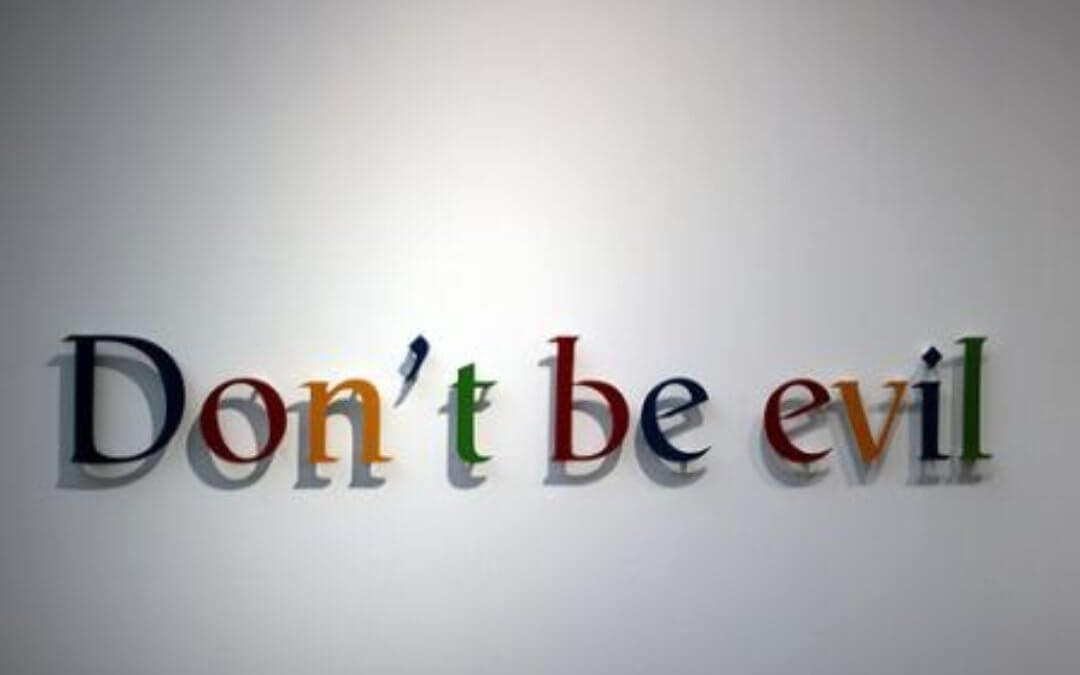Corporate Values
This question comes up for us often because we’re engaged with brands at an emotional level, not just intellectually or strategically. We’re working hard to connect brands to humans who make lasting emotional decisions a lot faster than they can come to logical ones.
One of the strongest emotional binders for human beings is shared values – they’re the basis of religion, among other things – so it’s logical to conclude that companies with strong brands put a lot of value into their values.
But often, they don’t. More likely, they neglect them for long stretches of time, and then “dust them off” or “update them” when there’s a major management transition or a new ad agency takes over the account. And this is where values suddenly become fungible, something malleable that can take any shape the new boss or new creatives need.
Instead of being a mirror that shows you what your company culture really looks like, values become one of those “you could look like this” simulations that cosmetic surgeons use to sell nips and tucks.
There are excellent return-on-investment reasons to understand values, state them clearly, and socialize them thoroughly. These reasons have nothing to do with nips and tucks, appearances or impressions. The main reason to invest in values is to turn people on emotionally about a company and its work. This goes both for employees inside and everyone else outside.
People joke about value #1 at Google – “Don’t be evil” – but ask yourself honestly whether you subscribe to it or not in your own life. I’m guessing you do. I’m also guessing that this particular value never crossed paths with your current employment on a conscious level.
Once we think of our jobs as doing the opposite of evil, we’re not just going to work anymore. We’re trying to make the world a better place. On purpose. As a matter of business success. Because everyone else at the company is rowing the same boat, in the same direction.
Now take a look outside Google. The criticism of “Don’t be evil” is never about the value. It’s always about whether people believe Google is living up to it or not. So even Google’s customers, critics, and investors are emotionally engaged with the company’s values. You think that can help a stock price go stratospheric?
The other big reason to get corporate values right – nailing them authentically and getting people lit up about them – is figuring out what matters for the long haul, not the next few years or quarters.
We’ve seen companies mount values exercises that didn’t produce hardly any actual values, yet the companies still thought they were effective because they identified some success factors. Of course success factors are good to know, but they’re like figuring out which kind of vehicle is best for a long road trip. You want to get that success factor right as a practical matter, but it doesn’t tell you where you want to go, or fuel the desire (and the vehicle) to get you there.
Values do that.
Values keep companies healthy and happy through recessions, keep them from over-doing it during booms and bubbles, and keep them recruiting the kind of people they need to execute the strategy.
If you want a real ROI on values, consider how they help corporations decide which businesses to stay in and which ones to exit.
We saw one client sell a profitable $10 billion automotive business in order to go into alternative energy, because of its deeply embedded values for bringing the world game-changing innovation. The choice was clear: keep making $100 million a year on auto parts, or build a new business meeting an urgent need for humanity. It was no contest.
Investors could hardly complain, because the company wasn’t going rogue. It wasn’t going green for the sake of appearances or its brand. It was doing what had built value for the company and its stakeholders for decades.
And in the end, that’s the reason for getting values right. We think of them as abstract ideas, but they create physical and monetary value when they’re fully alive in employee hearts and management minds.
Emotive Brand is a San Francisco brand strategy firm.





